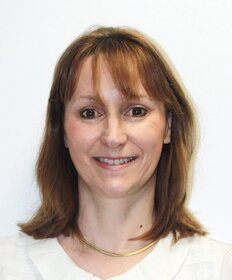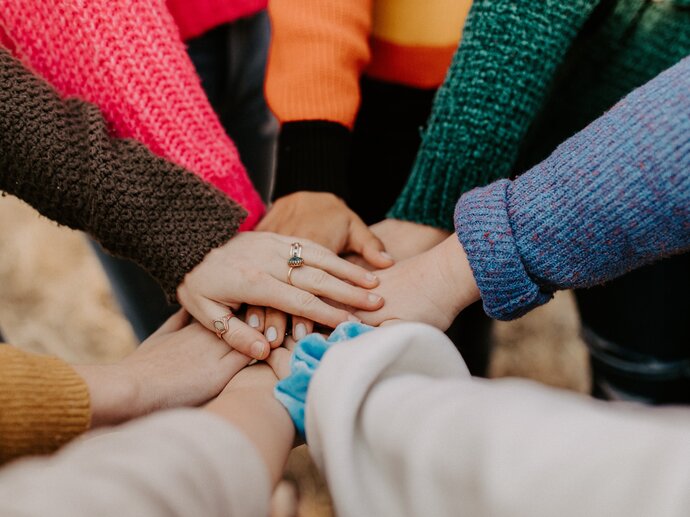Impact in Qualitative Research: Elsa Montgomery – Co-producing online resources for maximum impact

Elsa Montgomery is a Senior Lecturer in the Florence Nightingale Faculty of Nursing, Midwifery & Palliative Care. Her overall aim is to ensure that women, babies and their families receive excellent care during their encounters with maternity services through pregnancy, birth and beyond. She believes this can be achieved through both education and research. In education, she works to equip students with the skills to be the best safe, compassionate practitioners they can be; able to deliver evidence-based care and respond to the needs of individual women. In research, this means listening to women, learning their priorities and understanding what the important unanswered questions are. In this blog post, Elsa reflects on co-producing an online resource using qualitative approaches to help prepare survivors of CSA for pregnancy, birth and parenthood, and the impact this has had for parents and professionals.
Little did I know, when I invited a support group called CIS’ters to speak to midwifery students at the University of Southampton where I was working at the time, what an impact the session would have on me. CIS’ters is a survivor led group for women who have experienced childhood sexual abuse (CSA).
I was aware of CSA but did not think I had provided care for anyone who had experienced it when I was working as a clinical midwife. The next couple of hours proved very uncomfortable for me. When I discovered that at least one in five women have experienced CSA, I realised that I must have done. When I also realised that I had almost certainly said things to women that would have been triggers for those who had experienced abuse – ‘just relax’, ‘open your legs a bit for me’ – I was concerned that I might have inadvertently caused trauma to those in my care. A comment by one of the presenters who highlighted that there had not been any research on the subject and that CIS’ters would like to collaborate with the university in doing some, changed my direction of travel. After an appropriate gestation period of nine months, my PhD on the maternity care experiences of women who were sexually abused in childhood began.
I conducted a feminist narrative study with three phases:
- In-depth interviews with women
- Review of their maternity care records
- Group and individual interviews with maternity care professionals
By the time my study was over, I realised how much courage it must have taken women to talk to me. A number acknowledged that they had not spoken in such a way to anyone before. I was in awe of their eloquence and the power of their words.
The overarching theme that emerged from my study was silence: women had spent their childhoods fading into the background and trying not to be noticed. They had approached their maternity care in the same way. Few had disclosed to those caring for them, often due to guilt and shame. The healthcare professionals sometimes sensed that ‘there’s something else going on here’ but were reluctant to ‘open a can of worms’, especially when they were unsure how to respond. CSA was taboo in society and therefore not something that people felt comfortable speaking about. I felt a huge responsibility to make sure the words of the survivors1 who had participated in my study were heard. Once at King’s, a Wellcome Trust ‘Engaging People’ Award provided an opportunity for that to happen.
Working with The Survivors Trust, my colleague, Yan-Shing Chang and I co-produced an online resource to help prepare survivors of CSA for pregnancy, birth and parenthood. We knew that CSA ‘casts a long shadow’ and that its impact can last a lifetime. We wanted to create a safe space for those who are silent and hidden within society, to explore questions and concerns about having a baby. We worked with some survivors who had experienced pregnancy and birth, who shared what they wished they had known before they had their babies. They told us that they recognised their own experiences in the stories told by the participants of my doctoral study. We also worked with survivors who wished to have a baby one day. They explored their hopes, fears, and questions. The final resource is hosted on The Survivors Trust website.
Mindful of the importance of control and feeling safe for people who have experienced CSA, how difficult the topic is, and how hard to hear the words of survivors can be, the resource is divided into small sections. These follow a journey through deciding whether to have a baby, pregnancy, birth and becoming a parent. Users can work at their own pace. They choose when, where and how they access the sections. The resource was built in collaboration with learning technologists from King’s College London and film production company ‘Jmotion’. Feedback from women involved with the co-production was appreciative:
It is really encouraging to see how much thought and consideration has gone in to putting this together, with a clear steer from survivors for survivors. It is indeed a privilege to take part and help shape the information that will help other survivors prepare for their pregnancy journey.
The resource covers so much and is excellently well put together. It is clear that it has been done with empathy and compassion and has not shielded the unpleasant and uncomfortable reality for some pregnant women or women planning to have children who have been sexually abused.
The range of experiences represented was valued:
The variety of feelings and experiences by survivors who have been at various stages of pregnancy. There was no right or wrong way to feel and allows all feelings to be validated.
As far as we are aware, this is the first resource in the world supporting those who have experienced CSA through childbirth that has been co-produced by those for whom it is designed. By October 2022, the resource has been viewed 6,483 times and feedback has been positive. The potential impact of the resource was expressed in an email I received last year from a user:
I was sexually abused as a child, and worked through the materials just a few weeks ago. I resonated with so much that was shared and it gave me language to understand or express my experiences more clearly. I felt less alone.
Some of those who have accessed the resource are healthcare professionals. They have indicated the need for a similar resource intended for a professional audience. This had been a recommendation from my PhD, and it is now a priority following inclusion of care of women who have experienced sexual abuse in the latest Nursing and Midwifery Council Standards of Proficiency for Midwives.
1 I use the term ‘survivor’ as useful shorthand. I recognise that not all women who have experienced childhood sexual abuse find this a relevant or helpful term.
